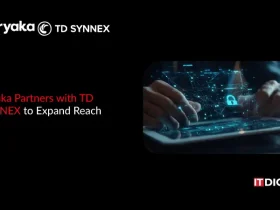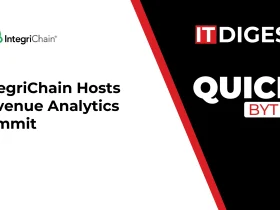As the race to Net Zero continues, discussions around a unified approach to measurement and standardization remain front and center. Chainlink Labs, the organization developing the global decentralized oracle standard powering mainstream blockchain adoption, and Tecnalia, a leading European research institute, have released a new report providing a primer on how to accelerate the transition from fossil fuels to clean energy sources using blockchain technology.
Also Read: Service Providers: “Time to get AI/ML out of the labs and into production”
“A data-driven backend infrastructure is critical to propelling the cross-sector collaboration needed to address the climate crisis,” said William Herkelrath, managing director at Chainlink Labs. “By using Chainlink to bridge some of the highest-quality climate data in the world onto blockchains for energy and climate initiatives, we can give the clean energy sector the tools it needs to expand its impact.”
Hybrid “on-chain/off-chain” solutions
One catalyst for the success of early adopters in the emerging blockchain industry has been the use of smart contracts. Smart contracts rely on oracle middleware to access secure external data, which then enables developers to create advanced blockchain applications. With high-quality climate and energy data accessible on-chain, smart contract developers have the tools they need to build the next generation of clean energy solutions.
The energy industry is facing new challenges, such as keeping an increasingly distributed energy grid in balance and steadily increasing the share of intermittent renewable energy generation while demonstrating investment returns on clean energy projects.
“During this period of major infrastructure and market transformation, utilities, service providers, and governments can use blockchain technology to digitize and assign value to clean energy investments and design fully automated incentive systems for participating in sustainable practices,” said Jose Luis Elejalde, the energy, climate and urban transition manager at Tecnalia.
A growing number of parametric insurance platforms have emerged that leverage oracle-powered weather data feeds and blockchain-based settlement to automate insurance assessments and payouts for both agribusinesses and energy producers. Arbol is one example of an Ethereum-based climate risk solutions platform that uses smart contracts to help energy businesses hedge power demand and revenue fluctuations around unexpected temperature variations.
Another example of a climate solution using blockchain technology explored in the report is Hyphen, which seeks to enhance the accuracy of corporate emissions reporting by leveraging data from leading atmospheric agencies such as the Integrated Carbon Observation System (ICOS).

































